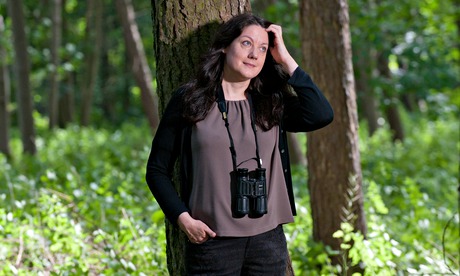
I was lucky enough to interview American writer Joan Didion in 2005. Her husband, the writer John Gregory Dunne, had recently died – from a heart attack in their New York apartment – and their only child Quintana was ill in hospital. I was hugely impressed by Didion, but when her American publisher told me that her forthcoming memoir of bereavement, The Year of Magical Thinking, was the best thing she had ever done, I thought: yeah, right. How likely was it that, at this stage, Didion would surpass her groundbreaking 1960s journalism?
I’m not sure what ranks as Didion’s strongest book, the one I might recommend in 20 years’ time. But I am sure that her reporting on her own mental life during a period of deep shock and sorrow, which is what The Year of Magical Thinking is, deserves to be treated every bit as seriously as anything she has ever written about crime, politics or culture.
Women’s memoirs have been the subject of attention recently. US television star Lena Dunham published one, Not That Kind of Girl, and then found herself accused – preposterously, in my view – of having sexually abused her sister. Earlier this month Helen Macdonald’s H is for Hawk, which describes how training a goshawk became her way of mourning her father, became the first memoir to win the £20,000 Samuel Johnson prize for non-fiction – beating off another stunning memoir about grief, Marion Coutts’s The Iceberg, in the process.
“The book is no way sentimental,” said the chair of judges, Claire Tomalin, of Macdonald’s memoir, as if to ward off criticism of a soppy choice. “She’s actually gone off to Texas and looked up all his papers and so she’s woven that story of TH White, who had an unsuccessful time with his goshawk, into her own story.” Research, here, is seen as a surprising bonus. Who would expect a solipsistic memoirist to bother?
We live in narcissistic times. Hadley Freeman and Suzanne Moore have both written recently about the tendency for women – egged on by publishers, editors, broadcasters – to mine their own lives for material. Women are too often told, said Freeman, “that all they can be trusted to write about is themselves”. Sometimes these confessions are presented as feminism.
And sometimes they are marvellous books which aren’t admired as much as they should be because of an age-old tendency to disparage women and anything perceived as feminine (emotional, subjective, weak, lacking rigour). I think women, currently, are the masters of memoir, writing not only more about themselves than men but better.
There have been thousands if not millions of memoirs published in the two decades since they became fashionable, and there are numerous sub-categories: autobiographies that tell a whole life story; investigative family histories (Alison Light’s Common People, also shortlisted for this year’s Samuel Johnson prize, is one of these); memoirs of childhood and coming of age; ghostwritten celebrity memoirs; misery memoirs; memoirs of journeys; and experiences from parenthood to falling off mountains.
And there are memoirs of illness and death. John Bayley began this strand with his 1998 book about his wife Iris Murdoch, later filmed by Richard Eyre, along with groundbreaking columnists such as Ruth Picardie, who wrote about dying of breast cancer in the Observer. Such pieces of writing made some readers uneasy. Was the interest they generated prurient? Did they involve an invasion of privacy?
Didion raised the bar, and recently a handful of female writers have followed her example by writing outstanding books about grief and mourning, which are as intellectually curious as they are full of feeling. Last year Sonali Deraniyagala published Wave, a shattering account of losing her parents, husband and children in the 2004 tsunami and the excruciating process of starting to put herself back together. Macdonald and Coutts maintained the standard. (Incidentally, the latter missed out on the shortlist for this week’s Guardian first book award despite strong support from two judges. Was her story of losing her husband to brain cancer simply too raw for the others?)
I am not saying the exploration of loss, or the construction of literary memorials to loved ones, is women’s work. I have never forgotten the articles Matthew Engel wrote about losing his son Laurie, aged just 13, to a rare and aggressive cancer. But the evidence suggests that women – primary carers and chief mourners in so much of history and art history – are especially good at this form of writing. We should salute them.

